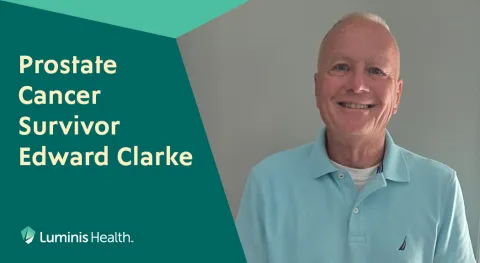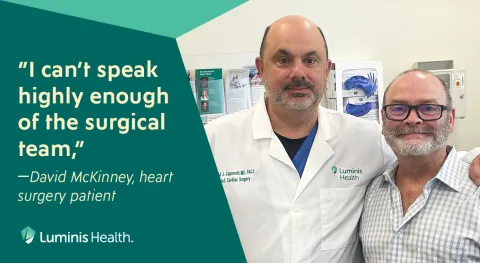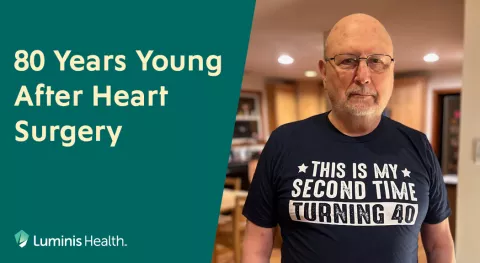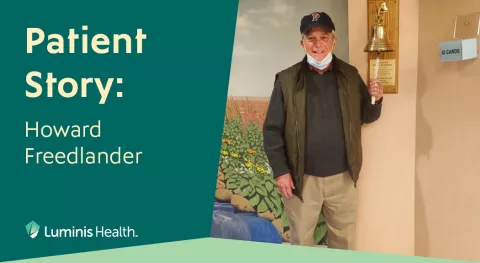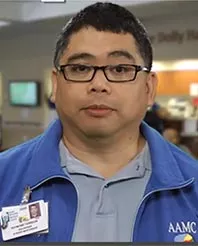
One year after suffering a stroke, 47-year-old Ray Torreon says the AAMC Stroke Club has played an important role in helping him recover from and learn to adjust to life after stroke.
At those early stroke club meetings . . . I didn’t intend to, but I broke down and cried. The support I got from them lifted my spirits, gave me hope. That’s what the stroke club does.
The volunteers that run it from the hospital are a great resource and the educational topics are helpful in terms of learning about stroke, about medication, therapy, the division of rehab services and what’s out there as far as getting a job. But as important as that it, the fellowship of having people who have been on this same journey is what I needed.
Other stroke patients understand how alienating and isolating it is— how alone you are even if you have people around you. Everyone’s stroke is different, but everyone in the stroke club has been depressed and has lost things and doesn’t know what the future holds for them.
I was a Capitol Hill lobbyist. I was a sales person running a 12 million dollar store. My speech was my trade and someone listening to me now might say my speech is fine, but I’m struggling because I don’t have the fluency I once had. I have never in my entire life struggled for words. I could sell ice cream to Eskimos. I don’t feel that way now. Other stroke patients understand that.
Even as everyone else says, “Oh, you look good, or you sound fine,” the stroke patient inwardly shakes his or her head and thinks, “No, I don’t feel fine.” I’m not recovered fully. I have deficits and even though I appear fine to you, I feel sad that I’ve lost some abilities that I know I used to have.”
You mourn for the person you were. In the stroke club you come to realize that they’ve had the same journey. There are people with severe aphasia. There are people who were in a wheelchair in the beginning and now they’re walking with a cane or a walker. That’s good to see.
Over time, we’ve sort of developed a core group, and we want to expand this to really touch as many other stroke patients as possible. We’re looking for active members and we’re planning more activities outside the stroke club just to socialize and help people along the path to finding a new life. A stroke literally blows up your life, and you have to put the pieces back together. The other members of the stroke club and I would like to help survivors put their lives back together more quickly than they can alone.
To learn more about the Stroke Support Group contact Laurie Neely, physical therapist, or Jennifer Irving, speech-language pathologist or by phone: 443-481-6872.
Visit our askAAMC to find out more about the support groups and services we offer to all members of our community.
